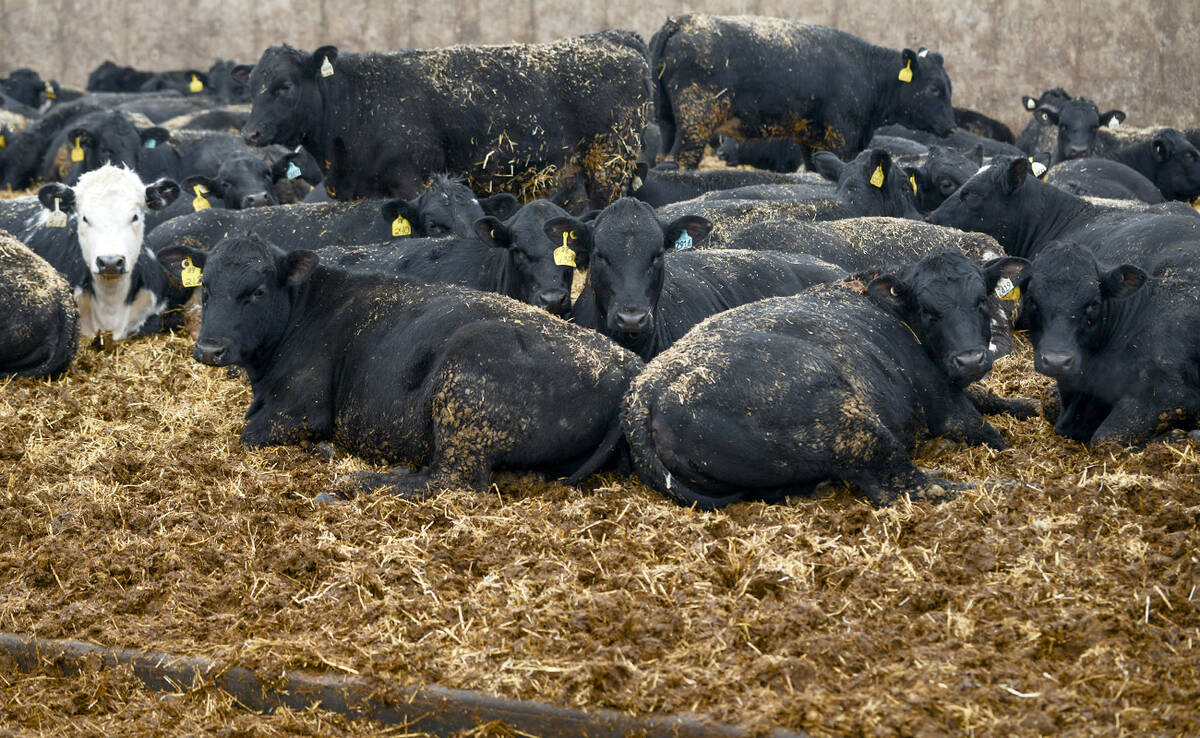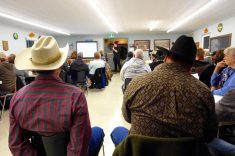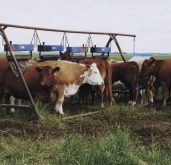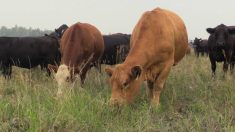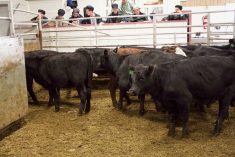A new beef-focused research chair will soon begin work at the University of Manitoba.
The 10-year role, recently announced by the Beef Cattle Research Council (BCRC), has been dubbed the BCRC Chair in Beef Cattle Economic Sustainability.
“I believe this is the fourth chair position that we’ve developed,” said Craig Lehr, chair of the BCRC’s producer council.
Read Also
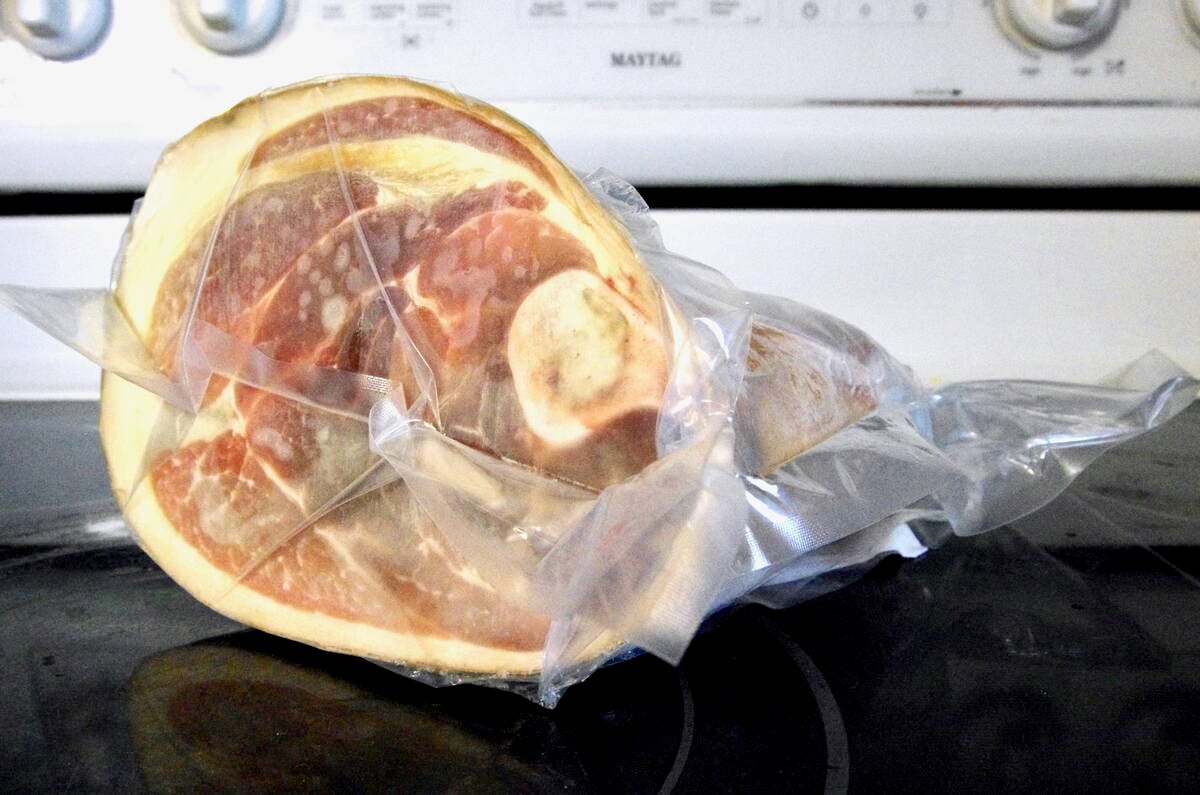
MANITOBA AG DAYS: Unmoved China tariffs worrying for Manitoba pork
Manitoba pork producers and Agriculture Minister Ron Kostyshyn have both noted lack of progress on Chinese tariffs on pork.
This one though, is different. Other BCRC-sponsored research chair positions are looking at production systems, forage management and diseases. This one brings in more of a financial lens.
“I feel it’s going to bring a lot of value to the industry,” said Lehr, who has a cow-calf and backgrounding feedlot northeast of Medicine Hat.
WHY IT MATTERS: Environmental impact is just one part of sustainability. Industry stresses that best management practices also have to make sense for the farm’s finances.
The BCRC’s long-term strategy had room for another chair position and the organization had the funds to sponsor it, Lehr noted. After discussions with Andrea Brocklebank, the executive director of the BCRC, it was decided that the position should have a focus on economics.
The chair will be focusing on both animal science and agricultural economics. The academic named to the role will have a background in both.
“One of the things associated with cow-calf operations is that they tend to be not as robust and economically viable as some other areas of farming,” said Martin Scanlon, dean of the faculty of agricultural and food sciences at the University of Manitoba.
“How do ranchers do what is right for the environment? Because you know, some of our students here are third-generation beef farmers. How are they going to be sustainable for five, six, seven generations? Beef farmers want to implement economically viable, sustainable practices, but they need to make sure they’re going to be workable.”

Lehr agreed.
“At the end of the day, if it doesn’t make you profitable or bring value to your farm or ranch, it’s not good. The simple thing is you can’t be green if you’re in the red,” he said.
Adding economics into the picture
The work done by the chair and their research associates will help put a bottom line on farm practices so producers can make informed decisions, Lehr said.
Scanlon noted some practices have been recommended as environmentally friendly, but it’s less clear if they can operate at scale. Producers need to know the economic returns for their environmental practices, he said.
The new chair will work to evaluate the economics of beef production, innovations to improve economic sustainability while reducing environmental footprints and looking at viable solutions for farmers. That could include innovative financial models and analyzing behavioural drivers that lead farmers to adopt best management practices
The chair will be housed in the department of animal science and will work closely with producers, policy makers and researchers to make sure their findings can be translated into actionable strategies.
Research chair backing
The BCRC chose the University of Manitoba after canvassing for interested schools, Lehr said.
“They just had an amazing proposal for us on how they were going to make this happen and it was a really good fit,” said Lehr.
The proposal was mainly written by Kim Ominski, the head of the animal science faculty, in collaboration with the dean’s office.
“She’s worked for many years looking at both the economic and environmental sustainability of beef cattle grazing,” said Scanlon.
Members of the BCRC recently had a chance to visit the University of Manitoba and meet with researchers.
Lehr said he was impressed by the passion and knowledge they encountered. “They’re all-in 100 per cent and good things are going to come out of it,” he said.

The role was sponsored by a $1.5 million grant from the BCRC, University of Manitoba and partners at Manitoba Beef Producers, Manitoba Agriculture and Manitoba Beef and Forage Initiatives.
Several more sponsors are expected to join soon, said Scanlon.
Filling a research chair
The chair is set up, but they have yet to find the person who will sit in it.
Lehr said staff from the University of Manitoba, the BCRC and members of the producer council will work together during the hiring process.
“Producers have the chance to ask questions, and it gives some of the staff or the university people a different perspective, just hearing it from producers,” he said.
“It’s not the producers’ decision on who they hire, but our inputs have been valuable … At the end of the day, they must be able to relate and connect with producers,” he said.
Scanlon said having a research chair in Manitoba will be a benefit for beef farmers.
“There’s quite a diversity of farming operations here in Manitoba. The Red River Valley has quite a different environment than Carberry in the Sandhills,” he said.
Due to the diversity of the land in Manitoba, the new chair will be able to conduct research in a wide variety of environments, he added.
Scanlon said best practices should also be viable in Saskatchewan and Alberta and possibly in Ontario and Quebec.


